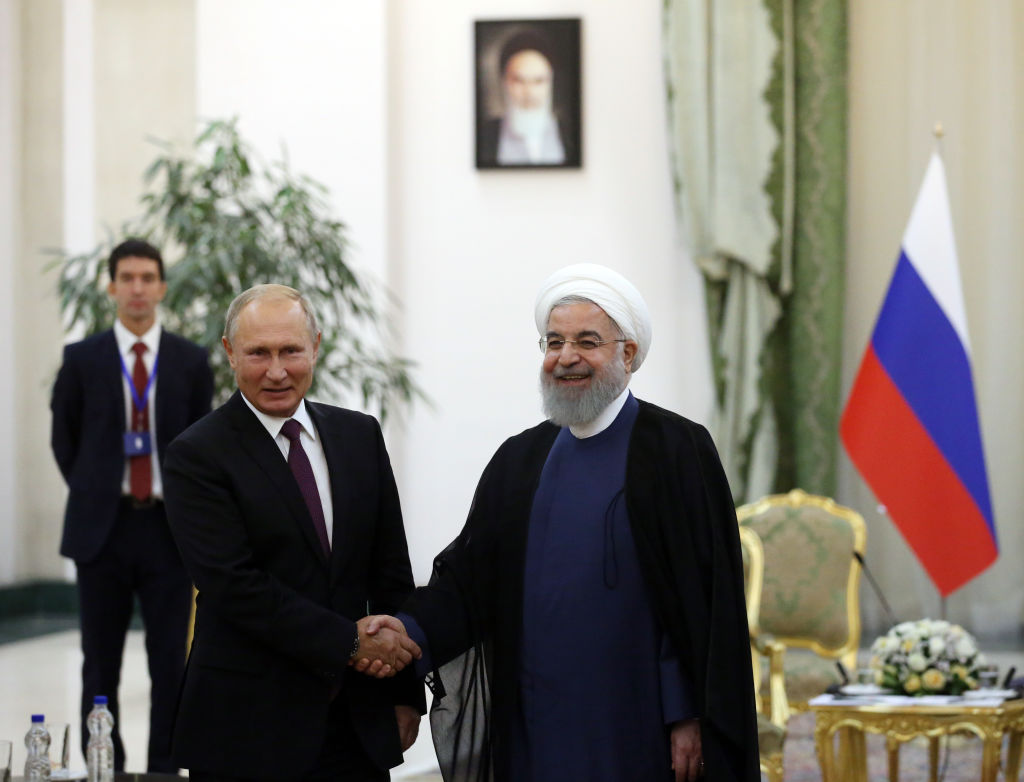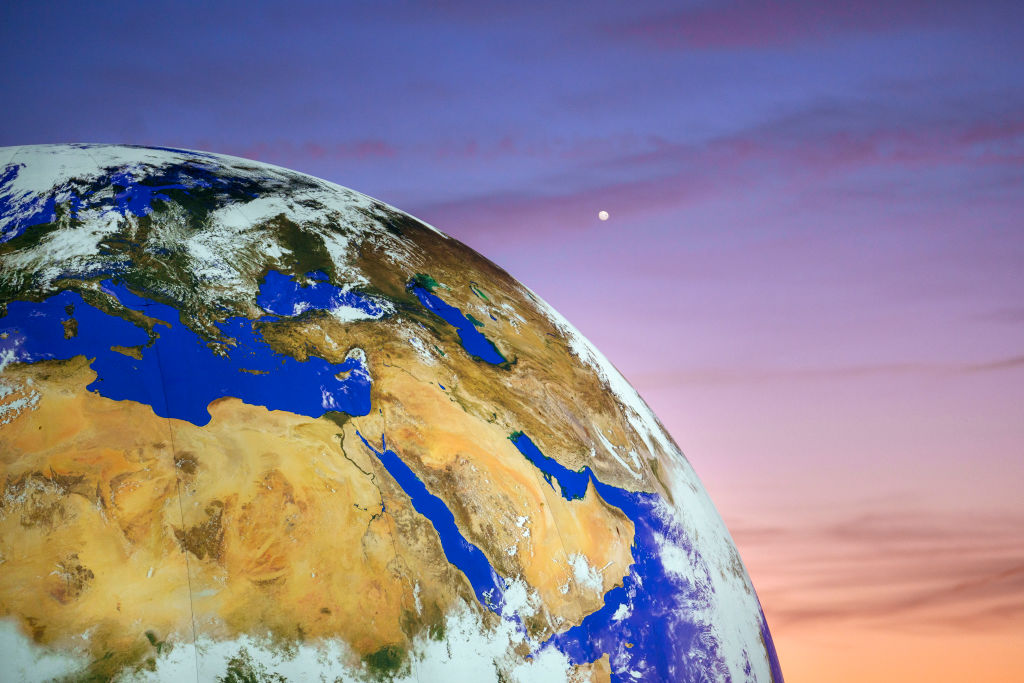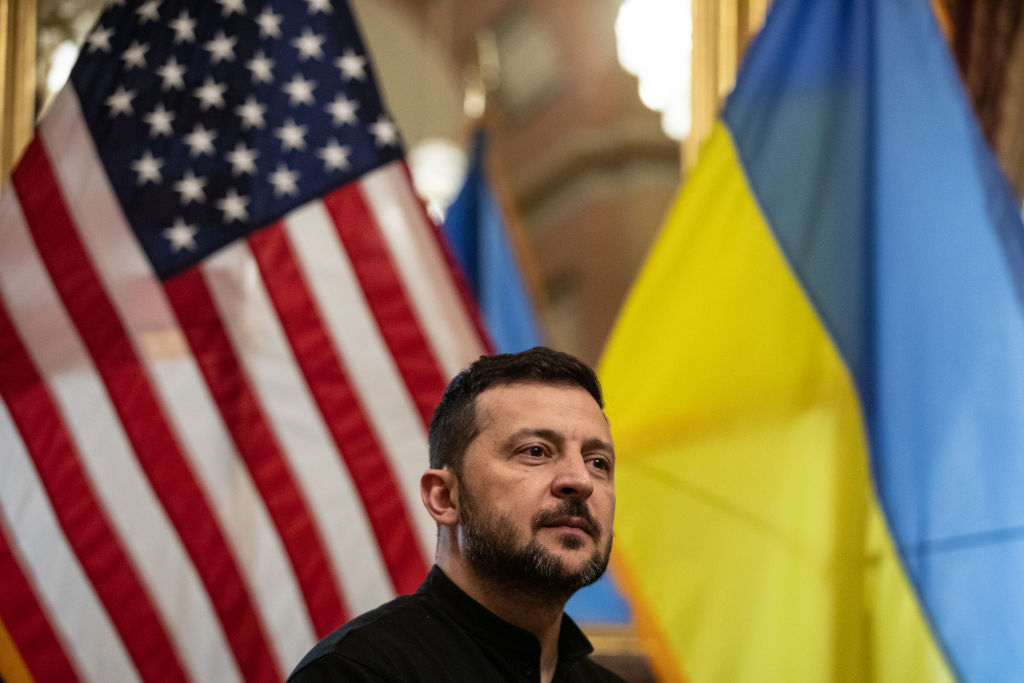There is no question that the world is spinning out of control, hurtling towards the catastrophe of major power war – which would likely see nuclear exchanges. Of course, the future is not pre-determined. But the Ukraine situation, with North Korean troops now taking the field in Kursk, risks a critical escalation. Israel is fighting on seven fronts against an almost-nuclear Iran. The Chinese military is getting ready to invade Taiwan by 2027, as ordered by Xi Jinping. In addition, the BRICS bloc is expanding, while the Eurasian Axis centred on China, Russia and Iran is becoming more coherent and effective.
Meanwhile, the West is viciously divided politically, hollowed-out culturally, declining demographically, incompetently led, insufficiently armed, unwilling to fight, industrially decimated – and technologically-suicidal, perhaps via AI but certainly via “green tech”. The West retains its primacy in the international system, but through inertia – and courtesy of past accumulations of wealth and intellectual capital – rather than through present performance.
In these conditions it is hard to discern a near-, medium- or long-term future evolution of the global picture that would be particularly favourable to the Western Alliance. Even if major war is averted, the general degradation of our societies and economic systems, coupled with the chaos spreading across the Third World – from the terrorism of Africa and Middle East, to civil wars, unrest or mass migration – makes it difficult to see how we will climb out of the hole dug for us by Davos Man and the “elites” who’ve been running our countries since the Cold War.
And yet, nothing is pre-determined. It is perhaps too easy to be pessimistic about the years to come on the basis of our present woes, and to extrapolate from this a dark future where all or most these disturbing trends come together in their worst form. Sometimes we need to consider the best case scenarios as well, and to remind ourselves that there are also reasons for hope.
After all, there is no denying that the element of luck weighs heavily in the scales of history: a Great Khan’s death curbing the Mongols’ takeover of Europe, a Soviet duty officer averting nuclear war by ignoring a false alert – the examples are endless. So often it has been the case that a seemingly-inevitable course of events was altered by a chance event or the action of one individual. Who is to say that the stars might not also start to align more in the West’s favour now-on, helping us snatch stability and peace from the jaws of chaos and conflict? Let us consider just a few twists of fate, working in conjunction with existing potentialities, that can re-draw the geostrategic picture in the coming years.
Trump
First, the optimist could point to the Trump effect. The American president has the power to bend the arc of history. Mediocre and cautious ones, like Biden, hardly use it; but bold, larger-than-life and highly driven characters, like Trump, tend to bring massive change. In his first term, Trump was hobbled by his own inexperience and unpreparedness, especially at the level of personnel. His second coming – if he wins, as it seems likely – will be radically different, having had four years to not just hone his plans for specific executive actions, but to build a cohort of loyalist – and, by all accounts, competent – operators which will be deployed throughout government.
There is therefore an optimistic scenario in which a new Trump Administration, with Elon Musk in charge of a new “government efficiency” task force, really does start to fix much of what is broken about America – starting with Government itself. Executive agencies would come under presidential – rather than “deep state” – control, the Pentagon would be overhauled, DEI would be expunged from the system thus increasing meritocracy and therefore competence. Waste would be drastically cut – including wasteful “green” socialist policies – together with illegal immigration.
The military would be massively expanded, cleaned of “woke-ism”, and re-infused with proper martial spirit. American space power would surge, both in the defence area – ensuring US and allied military dominance in orbit – and in the civilian domain, establishing a presence on the Moon and beginning humanity’s greatest adventure on Mars. All this would not only bring huge strategic advantages, but would also restore America’s global prestige as the most advanced scientific nation.
Again, in this positive scenario, Trump’s America would also see the economic revival that is at the heart of his vision. The reconstitution of the US industrial and manufacturing base. Deregulation and tax cuts – Trump has even talked about eliminating income tax altogether. Fossil fuel drilling expansion, coupled with “green” policies roll-back, for cheap energy prices. Crypto-friendly regulation. All of these, and more, have the potential to unleash an economic boom across the US, opening the way to budget surpluses and debt-reduction. From such an economic position, the United States would indeed be able to shape world events and relationships in its favour, and bend adversaries – and recalcitrant “friends”, like Europe – to its will.
New leaders
The second source of optimism is the inevitable “changing of the guard” at the top of key powers, sooner or later. Putin and Xi are 71, Erdogan is 70, Modi is 74, Iran’s Khamenei is 85 (and seems to be nearing his natural end). Xi is president for life, Modi has no term limits but must seek re-election in 2029, when he would be almost 79. Putin will also face his last “re-election” in 2030 (at 77), allowing him to stay in power until 2036 when he would be 83. Erdogan current term is technically his last; but there is constitutional room for him to run again before his term expires in 2028 (when he’ll be 74), which would effectively give him another 5-year term – taking him perhaps to 2032 or 2023 (at 78/79). Beyond that, he’ll need to change the constitution to extend his rule.
One conclusion from all this is that all these key leaders are now in the last stage of their career. The main political consequence is that in this period, around these late-stage leaders, there will inevitably be increasing friction and competition among potential “heirs” to the throne. This situation always presents political opportunities for opposing nations, in our case the West. Some of these leaders also face another round of elections in the coming years; even for authoritarians – Putin included – the going gets tougher in the twilight of their career, precisely because court intrigues tend to intensify.
Another aspect of this interesting and rather rare situation by historical standards – where all the key “inconvenient” adversaries are turning into “gerontocrats” – is indeed the higher chance of health-related departures from the scene. Of course, speculation about presumed illnesses – as has been prodigiously done with respect to Putin – is pointless. All of these men could function perfectly well in office for another 15 years. Still, the optimist cannot fail to note that the odds are changing against these authoritarians the more time passes.
It is therefore worth considering what possibilities for diplomatic negotiations and political resets might open if the likes of Xi, Putin or Erdogan are no longer in power – or indeed Modi. There is no suggestion that their successors would come with a radically different set of interests or perspectives; but any change of leader presents great opportunities and off-ramps for all kinds of new types of dialogue – if our side is competent enough to seize them, as well.
Pragmatism
A third reason that could bolster the case for optimism is that there is still scope for negotiations, compromises and de-escalation. One of the most consequential geopolitical deals in recent years was achieved only last week, when India and China agreed to stand down from their dispute on the Himalayan border which had seen deadly clashes between the two sides in 2020.
In a somewhat similar way, Israel recent retaliation against Iran was, in the end, more limited than feared by the international community, with “only” military rather than nuclear or oil production sites being targeted. Furthermore, it now also appears that US is in the process of brokering a 60-day ceasefire deal in Lebanon between Israel and Hezbollah.
Earlier in the year, Erdogan signalled Turkey’s desire to normalise relations with Syria – something that would have been inconceivable until recently. Before that, there was the equally extraordinary normalisation between the Saudis and Iran, and before that – in the Obama era, and then resumed under Biden, post the Trump interlude – there was the JCPOA, or the “Iran Deal”.
Even Ukraine and Russia are now understood to be negotiating a limited deal to cease attacks on each other’s energy infrastructure. And we should not forget the fact that despite the war Russian gas is still being delivered to places like Hungary through pipelines passing through Ukraine, and that Kyiv is still paid transit fees by Moscow.
For all the tension and fierce enmity accumulated at various geostrategic points between the Eurasian Axis and the Western Alliance, and for all the overall degeneration of the international system, pragmatism and self-interest continue to shape high-level political decisions – even if just in very limited situations, sometimes. In other words, there are deals to be done, all around – nothing is set in stone, and no timeline – not even Xi’s famous 2027 date for Taiwan – is immutable.
The underlying reason for this, and the real cause for hope in what diplomacy may yet achieve, is that we don’t really live in an ideological world, in the strict sense of the word. Where the term “ideology” is applied to a country or a leader’s vision today, its usage is almost always erroneous and intended to convey a sense of someone’s “worldview” or “mindset”, rather than actual ideological thinking.
True ideologues would be national-socialists like Hitler, fascists like Mussolini, or communists like Stalin or Castro, who operate within a complete ideological system with prescriptions for everything from organising the state, society and culture, to international relations. None of that exists, at a similar intensity, today; even communist China or theocratic Iran are but highly corrupted versions of the “ideal model”. Fanatics and extremist factions exist in all these adversarial countries – and indeed, in parts of the Western camp too – but, broadly speaking, unlike in the 1930s, 1940s and during the Cold War, our struggle now is against nationalist – indeed, imperialist – authoritarians.
The lack of that absolute ideological inflexibility at the very top is not a guarantee of easy negotiations or even rationality on every issue, but it does mean more room for engagement and the possibility of a deal. It also stands as a counter-argument to some of the wilder opinions among the Western “elite”, which cast Putin and even Xi as new Hitlers, with the same obsessive ambition to conquer at all costs. This is the origin of the narrative – accepted as gospel in certain European and American quarters – that Russia would certainly continue to attack westwards into NATO territory, after the Ukraine war.
In reality, the Russians, like the Iranians or the Chinese – and even the North Koreans – not only have an instinct for self-preservation, and thus a desire to avoid nuclear war, but operate broadly on classic Realpolitik principles. The lack of a strictly ideological mission for the polities they lead also means that their regimes value other things at least as much as they value war and “conquest” – things like getting rich and being more secure (as they see it).
Again, none of this is to say that dealing with such adversaries is easy or pretty. Especially when negotiations are conducted from a position of reduced strength – or even weakness – the results may well be distasteful, even if they do achieve the ultimate goal of peace. It is becoming increasingly difficult to believe that we can get out of the current geopolitical mess – if that is even possible – without paying a hefty price, in some form, for all the follies and illusions produced by our foreign policy intelligentsia since the Cold War.
Conclusion
Among all the tragedy and danger spanning global affairs at present, there are also some good news and grounds for hope. The return of Donald Trump to the White House can transform the situation, by fixing America, bringing allies in line and making enemies think twice before taking any further risks.
Then, this dangerous cycle in world history that has brought back great power competition in a very short span of time – over the past decade, more or less – has the particularity of featuring a set of gerontocrats in charge of the antagonist or “frenemy” powers. Again, this offers hope that radical changes in policy could ensue in some of these countries if their leaders leave the scene.
Finally, the fact that we live in a post-ideological age means that there are deals to be made, in order to stabilise the international system once again. The global architecture of institutions, agreements and dialogue frameworks is battered and dysfunctional, but still in place.
There is, therefore, scope – in theory – for negotiations that can start to release tensions from the system and move toward conflict resolution on the main issues. The problem, of course, is that on our side we need competent leaders and diplomats able to act strategically and bravely, and deal pragmatically with our opponents. There are hardly any such statesmen in Western countries, and it is difficult to see how they might emerge. But that’s what optimism is for.
Gabriel Elefteriu is deputy director at the Council on Geostrategy in London and a fellow at Yorktown Institute in Washington, D.C.






The West’s geopolitical situation is deteriorating – and we are doing too little about it: Five scenarios for the next decade